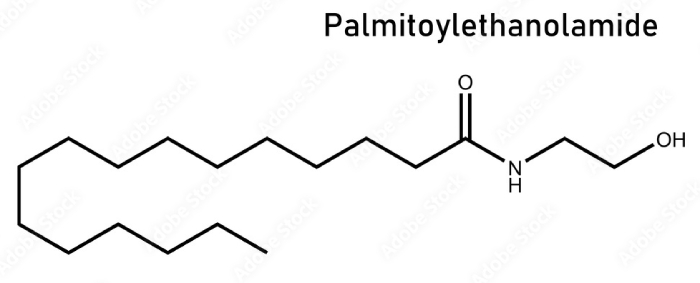FDA on Rosacea Treatment in Adults Using Emrosi: Yay!
The U.S. Food and Drug Administration (FDA) has granted approval for Journey Medical’s Emrosi (minocycline hydrochloride) to treat inflammatory rosacea in adults. This new oral medication, available in extended-release capsules (40 mg), is expected to hit the market by late Q1 or early Q2 of 2025.
The approval follows positive outcomes from two 16-week Phase III clinical trials, where Emrosi surpassed both the current standard treatment, Oracea, and a placebo on key endpoints. These included the Investigator’s Global Assessment (IGA) treatment success and a reduction in total inflammatory lesion count, demonstrating significant efficacy. Moreover, the trials revealed no major safety concerns among participants.
Claude Maraoui, Journey Medical’s co-founder, president, and CEO, expressed optimism about Emrosi’s potential to become the leading oral medication for rosacea, referring to the skin condition as “difficult to treat.” He also highlighted the company’s readiness to launch Emrosi, positioning it as the new gold standard in rosacea treatment.
Commentary by YourDailyFit columnist Alice Winters:

Journey Medical’s approval of Emrosi for rosacea represents an important step forward in dermatological treatments for this chronic skin condition, which affects millions of adults worldwide. While the clinical trial results are promising, a deeper analysis of the medication’s composition, safety profile, and potential market positioning reveals several points of interest.
Clinical Trials and Efficacy
Emrosi’s efficacy data is compelling—especially its demonstrated superiority over Oracea, the current standard of care for inflammatory rosacea. Oracea, which contains a low-dose doxycycline formulation, has been a go-to treatment for several years, so Emrosi’s edge in reducing inflammatory lesions and achieving treatment success on the Investigator’s Global Assessment scale is notable. The Phase III trials confirmed that Emrosi met both co-primary and secondary endpoints, suggesting that the drug is not only effective in treating visible symptoms but may also offer longer-term benefits.
However, clinical trials, by their very nature, present an optimistic picture of a treatment’s potential. While no significant safety issues were identified during the trials, the real-world safety profile remains to be fully understood. It will be important for healthcare professionals to monitor how Emrosi performs once it is introduced into broader clinical practice, especially in diverse populations and those with comorbid conditions. This is a point of caution, given that rosacea is often accompanied by other skin or systemic conditions, and minocycline has been associated with side effects in some patients, including gastrointestinal upset and, less commonly, more serious reactions such as liver toxicity.
Minocycline: A Known Entity
Minocycline is not a new molecule in the world of medicine. It is a broad-spectrum tetracycline antibiotic that has been used for various dermatological conditions, including acne vulgaris, for decades. Its extended-release form in Emrosi presents a potential advantage in terms of patient compliance. Extended-release formulations generally offer more convenient dosing schedules and may reduce gastrointestinal side effects, making them more appealing to patients. However, it’s worth considering whether this formulation will be truly transformative in the treatment of rosacea, or if the key differentiator lies in the specific dosing and timing regimen compared to existing options like Oracea.
Minocycline’s long history of use also means that its safety profile is well-established. That said, minocycline has been linked to a range of side effects, including potential effects on bone and skin pigmentation (a rare but concerning issue for long-term users). Emrosi’s extended-release formulation could mitigate some of these risks, but the FDA’s approval process will likely have included an evaluation of these concerns, and post-market surveillance will be essential to track any emerging issues.
Market Position and Competitive Landscape
The rosacea treatment market is far from saturated, but it is competitive. Emrosi’s approval positions it as a new option in a market that already includes well-established players like Oracea, as well as topical treatments like MetroGel and Soolantra. Its potential to be “best-in-class” hinges on whether it can outperform existing treatments not only in clinical trials but also in terms of patient experience. Oral medications often have the edge over topical ones in terms of ease of use, particularly for patients with widespread rosacea, but topicals come with fewer systemic risks and are often more accessible due to their lower cost.
The success of Emrosi will depend heavily on how well Journey Medical can differentiate it from Oracea and other treatments in terms of patient outcomes, ease of use, and, most importantly, safety. The company’s emphasis on its “seasoned dermatology-focused sales force” signals a strong marketing push, but much of its success will also depend on physician buy-in. The new standard of care will be shaped not only by clinical data but by real-world experience and the degree to which Emrosi’s safety and efficacy hold up in everyday practice.
Looking Ahead
While the clinical approval of Emrosi represents a major milestone, its true impact on the rosacea treatment landscape will be determined by its market reception and patient outcomes in real-world settings. For patients, especially those who have not found relief with existing treatments, Emrosi offers a new avenue to manage this frustrating condition. For Journey Medical, the challenge will be to maintain momentum after the launch, ensuring that Emrosi lives up to its potential as a truly innovative treatment in dermatology.
In conclusion, while Emrosi’s clinical trial results are promising, its long-term success will depend on the evolving real-world evidence surrounding its safety, efficacy, and patient experience. The rosacea treatment field may soon see a shift, but only time will tell if Emrosi becomes the gold standard it aspires to be.



